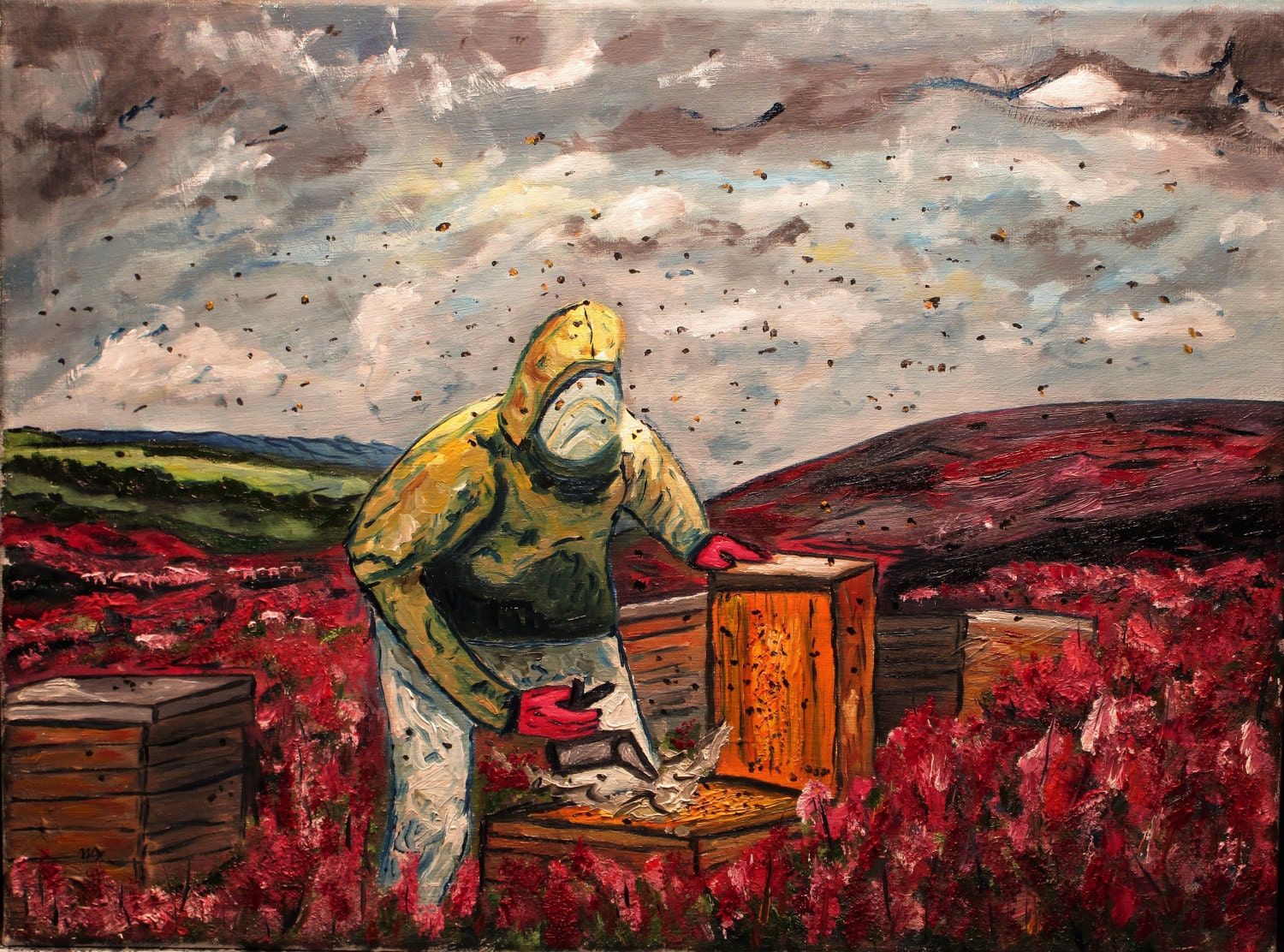On Writing And Being A Bee
If you sting, you die. If you make honey, you nurture. That is if you're a bee. I sometimes think about being a beekeeper and find it a helpful metaphor for writing. I have to go slow not to get stung by the inner critic.

If you sting, you die. If you make honey, you nurture. That is if you're a bee. I sometimes think about being a beekeeper and find it a helpful metaphor for writing. I have to go slow not to get stung by the inner critic.
"You gotta move in ultra-slow-motion, and then go slower," a friend who recently started keeping bees told me. You go too fast and they'll take it as a threat and attack you.
Over the years, I've found that getting stung is helpful, or rather being fine with being stung is more helpful. Writing is supposed to hurt a little. When we write, we're reaching down into chaos. And chaos doesn't purr, the creativity of chaos stings because it's organic and clumsy.
Bees as a metaphor are like thoughts, opinions, feelings, emotions, beliefs, and so on. They are parts of equal size fighting rigidly for balance so the queen may prosper. For her, they keep a profound level of unquestionable camaraderie. And maybe what I find helpful with writing is that it helps me see my parts, good, bad, gray, secure, and insecure. Seeing might be the first step so harmony can arrive.
Reading the Buddhist Pupphavagga: Blossoms (translated from Pali by Thanissaro Bhikkhu), I'm also reminded that being a bee can mean harvesting without hurting ourselves.
As a bee — without harming
the blossom,
its color,
its fragrance —
takes its nectar & flies away:
so should the sage
go through a village
